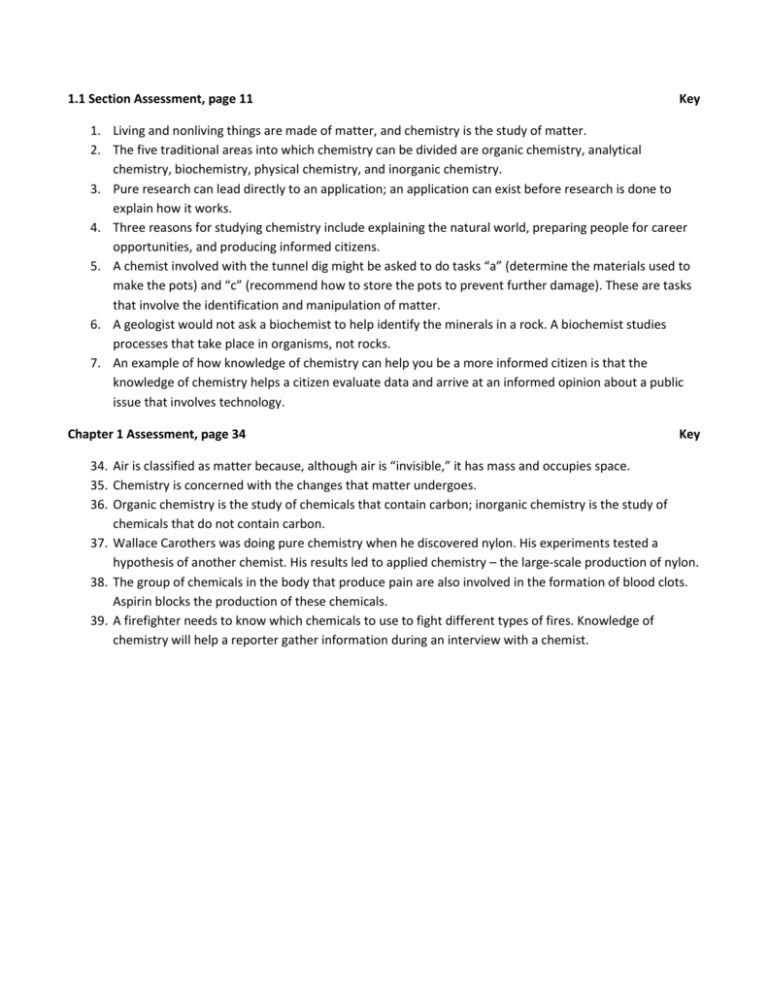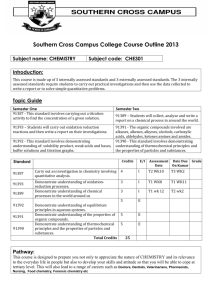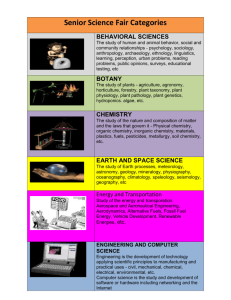Section 1.1 HW Key
advertisement

1.1 Section Assessment, page 11 Key 1. Living and nonliving things are made of matter, and chemistry is the study of matter. 2. The five traditional areas into which chemistry can be divided are organic chemistry, analytical chemistry, biochemistry, physical chemistry, and inorganic chemistry. 3. Pure research can lead directly to an application; an application can exist before research is done to explain how it works. 4. Three reasons for studying chemistry include explaining the natural world, preparing people for career opportunities, and producing informed citizens. 5. A chemist involved with the tunnel dig might be asked to do tasks “a” (determine the materials used to make the pots) and “c” (recommend how to store the pots to prevent further damage). These are tasks that involve the identification and manipulation of matter. 6. A geologist would not ask a biochemist to help identify the minerals in a rock. A biochemist studies processes that take place in organisms, not rocks. 7. An example of how knowledge of chemistry can help you be a more informed citizen is that the knowledge of chemistry helps a citizen evaluate data and arrive at an informed opinion about a public issue that involves technology. Chapter 1 Assessment, page 34 Key 34. Air is classified as matter because, although air is “invisible,” it has mass and occupies space. 35. Chemistry is concerned with the changes that matter undergoes. 36. Organic chemistry is the study of chemicals that contain carbon; inorganic chemistry is the study of chemicals that do not contain carbon. 37. Wallace Carothers was doing pure chemistry when he discovered nylon. His experiments tested a hypothesis of another chemist. His results led to applied chemistry – the large-scale production of nylon. 38. The group of chemicals in the body that produce pain are also involved in the formation of blood clots. Aspirin blocks the production of these chemicals. 39. A firefighter needs to know which chemicals to use to fight different types of fires. Knowledge of chemistry will help a reporter gather information during an interview with a chemist.






